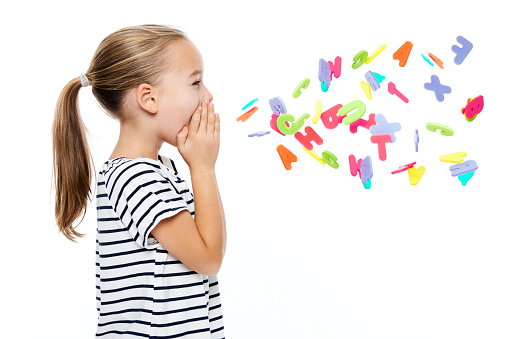Language Sensitivity in Babies
According to Maria Montessori, sensitivity to language is the most concrete one among sensitive periods. During these periods, children effortlessly learn the languages spoken around them. (Maria Montessori talks about the existence of four sensitive periods between the ages of 0-6. In these sensitive periods, our children’s needs and interests intensify towards a certain subject. According to Maria Montessori, when these sensitive periods are missed, it is much more difficult for the child to bring this information together in the later stages of her life.
As the child continues his development, especially between the ages of zero and three, he begins to understand and eventually decipher the language spoken around him, learning and speaking his mother tongue almost effortlessly. However, anyone who has tried to learn a foreign language in adulthood knows very well how demanding and difficult it is. This period begins before the child even begins to walk and is closely linked to the adult’s interaction with the child. Montessori states that ‘without resorting to the help of thinking, without taking any language lessons and without any conscious effort, the child begins to speak the language spoken around him almost perfectly. This is very important information. Many parents think that it is not necessary for their children to learn much during the preschool period. They will go to schools and learn something throughout their lives. They are also right; They just want their children to be happy and joyful. However, the key information here is that the information gained through games and activities, or simply by listening and observing those around us, is recorded in our brains without any effort, and in fact, it enables us to raise more comfortable, happy and self-confident children in all areas including school life in the future. This is where the importance of language development and teaching a second language at 0-6 years of age comes from.
Benefits of learning different languages at an early age
Speaking at the Brain Power Initiative Conference held in Toronto in May 2012, Ellen Bialystock stated that learning different languages improves brain development beyond the obvious benefits of reading, writing and speaking in a different language. Bialystock also states that learning second and third languages will enable the child to better understand their own language; He also stated that he would gain gains in memory, attention, problem solving and planning his abilities. Psychologist Bialystock, who has books on bilingualism, also suggested that if these children can maintain their multilingual characteristics, they will have less cognitive decline when they grow up than their monolingual peers.
In short, if you can, your child spends time with a friend, teacher or friend whose mother tongue is different from yours; It will be very useful for him to listen to him and try to communicate with him. If your child was not born in a family where parents speak different languages, it is recommended to first provide the necessary infrastructure to learn their own language well. Then, if possible, it is most desirable that the foreign language be taught by native speakers. However, in cases where this is not possible, people and educators who you believe speak this language well can help your child in this regard. Especially after the age of three, listening to books in a foreign language (there are very good i-pad applications for this subject), learning songs in a foreign language or television programs designed especially for children, which we allow in limited times, can also be beneficial. (We emphasize the limited times here once again because warning articles are published every day about the intensification of use such as TV, tablet and phone at an early age. It is recommended to allow technology meetings for no more than two hours a day, if possible, and for a maximum of one hour a day between the ages of 2-4. )
